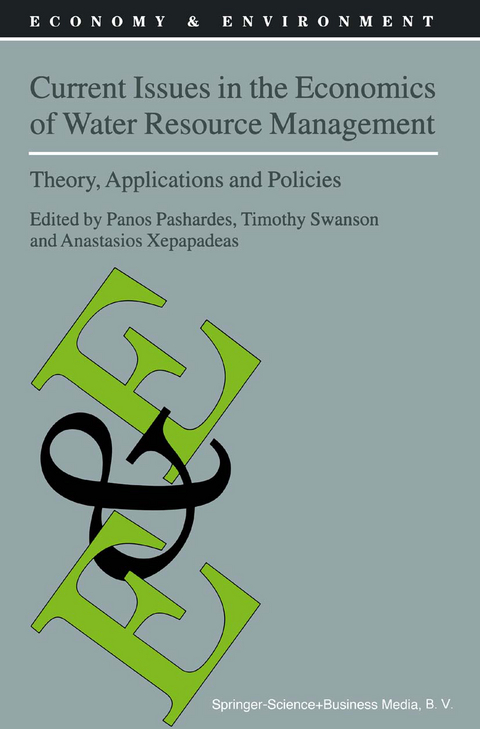
Current Issues in the Economics of Water Resource Management
Springer-Verlag New York Inc.
978-1-4020-0542-8 (ISBN)
1: Introduction.- Current Issues in the Economics of Water Resource Management: Introduction.- 2: Demand for Water.- 2.1. Residential Demand for Water.- Estimating Water Demand under Increasing-Block Tariffs Using Aggregate Data and Proportions of Users per Block.- Long-Run Study of Residential Water Consumption.- 2.2. Irrigation Water Demand.- Hedonic Price Analysis and Selectivity Bias: Water Salinity and Demand for Land.- 3: Water Efficiency.- 3.1. Measurement of Water Efficiency.- Measuring Irrigation Water Efficiency with a Stochastic Production Frontier: An Application to Greek Out-of-Season Vegetable Cultivation.- 3.2. Efficient Use and Management of Water.- Strategic Behavior and Efficiency in the Common Property Extraction of Groundwater.- Demand-Side Technology Standards under Inefficient Pricing Regimes: Are They Effective Water Conservation Tools in the Long-Run?.- 4: Water Management Policies.- 4.1. Water As Multifaceted Resource — Horizontal Management Consideratians.- Joint Quantity/Quality Management of Groundwater.- Missing Markets and Redundant Reservoirs: Dams as a Consequence of Inefficient Groundwater Management Policies.- 4.2. Water as an Industrial Management Problem — Vertical Considerations.- Regulation of Public Utilities under Asymmetric Information: The Case of Municipal Water Supply in France.- 4.3. Water Policy and Water Practice — Second Best.- Policy Instruments for Groundwater Management for Agriculture and Nature in the Netherlands.
| Reihe/Serie | Economy & Environment ; 23 |
|---|---|
| Zusatzinfo | X, 234 p. |
| Verlagsort | New York, NY |
| Sprache | englisch |
| Maße | 155 x 235 mm |
| Themenwelt | Naturwissenschaften ► Biologie ► Ökologie / Naturschutz |
| Naturwissenschaften ► Geowissenschaften ► Geologie | |
| Recht / Steuern ► Öffentliches Recht | |
| Wirtschaft ► Volkswirtschaftslehre | |
| ISBN-10 | 1-4020-0542-3 / 1402005423 |
| ISBN-13 | 978-1-4020-0542-8 / 9781402005428 |
| Zustand | Neuware |
| Haben Sie eine Frage zum Produkt? |
aus dem Bereich


